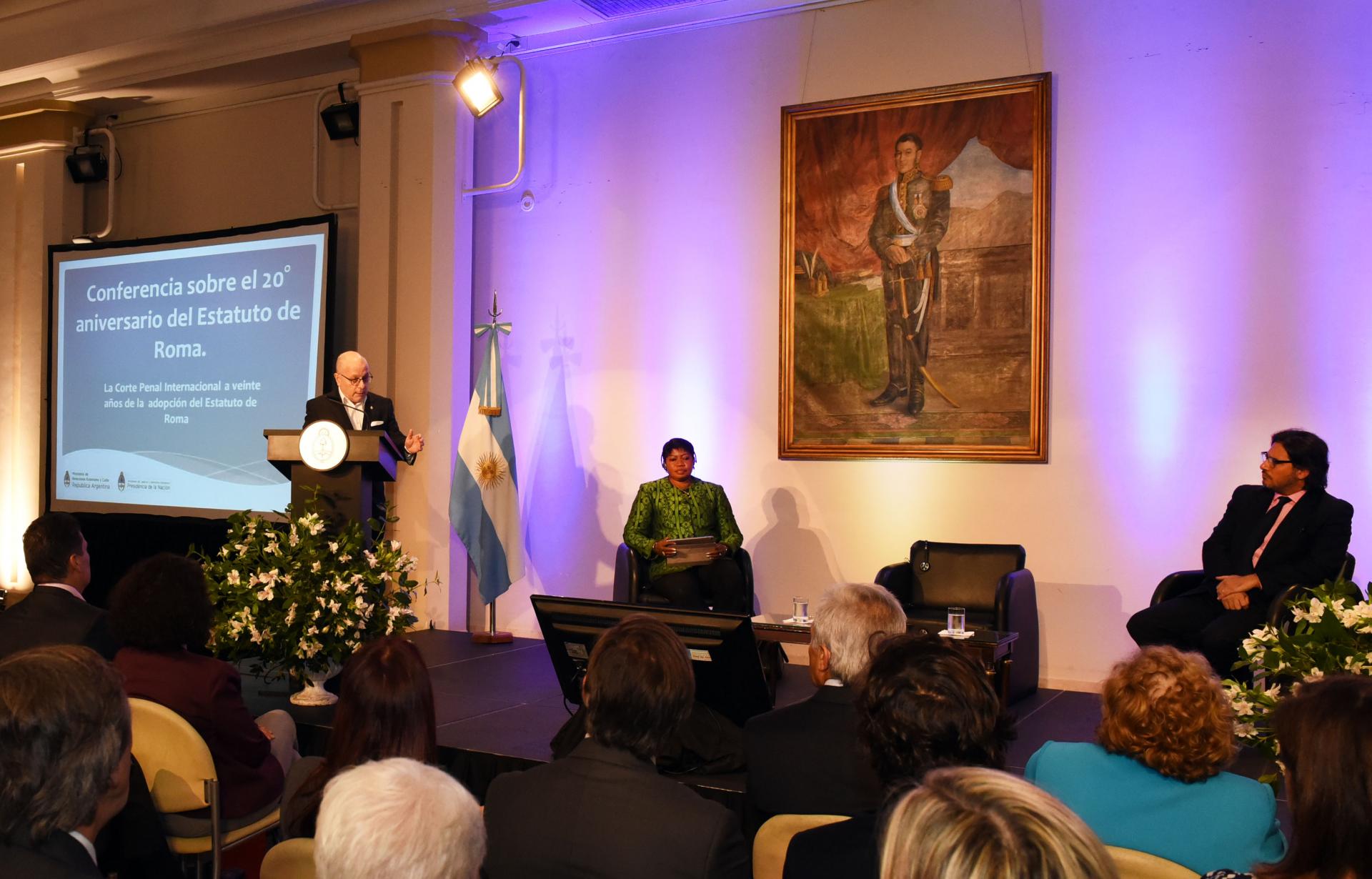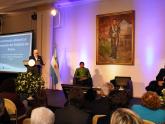"The International Criminal Court was ultimately established in order to provide mechanisms to fight impunity. For this reason, Argentina —which has experienced major instances of impunity— promoted, from the start, the signing of the Rome Statute and the creation of the Court," Minister Jorge Faurie stated this afternoon alongside the Minister of Justice and Human Rights, Germán Garavano, at the opening of a conference held at the Palacio San Martín on the 20th anniversary of the adoption of the Rome Statute, the founding instrument of the International Criminal Court (ICC).
Minister Faurie underscored the participation in the conference of the ICC Prosecutor, Fatou Bensouda, and the former President of the Court, Argentine diplomat Silvia Fernández de Gurmendi.
The Argentine Foreign Minister explained that "the ICC takes action when States are unable or unwilling to do so, which has been a major advance in the international legal system. We no longer need mechanisms specially created for specific cases. Therefore, it is necessary to strengthen the ICC and its universalization, and Member States must undertake to comply with the provisions of the Rome Statute and support the fulfilment of these goals."
Minister Faurie noted that the ICC is "an institution of major importance to the world and international affairs." "Argentina has been closely linked to the Court since its creation and will continue to work alongside it. We must commend the ICC for the impartiality, independence and high quality of its legal proceedings, as well as the Prosecutor for her work, especially as regards sexual, gender and juvenile offences."
To conclude, Minister Faurie also highlighted that "the Court's research and rulings contribute to building a better world that can be governed more transparently."
Minister Garavano, on his part, stated that the creation of the ICC is "a step for mankind towards the defence of human rights in order to protect the weakest from heinous situations" and ratified that Argentina's commitment to the ICC is a true State policy that has been developed over the course of several administrations.
Finally, Prosecutor Fatou Bensouda underscored that "Argentina has always offered great support to the Court" and highlighted that both the first Prosecutor and the first President of the Court were Argentine nationals. It bears noting that Fabricio Guariglia, from Argentina, is the incumbent Director of the Prosecution and Appeals Division of the Office of the Prosecutor of the ICC.
THE ROME STATUTE AND THE ICC
The Rome Statute, the ICC's founding instrument, was adopted to provide justice for victims, punish criminal perpetrators, and contribute to guaranteeing more stable and peaceful societies.
Argentina ratified the Rome Statute in 2001, less than three years after its adoption.
In addition, over the last two years, Argentina was the first country to sign the four voluntary cooperation agreements promoted by the Court relating to witness protection, enforcement of sentences, interim release and release of persons.
Press release No. 135/18




